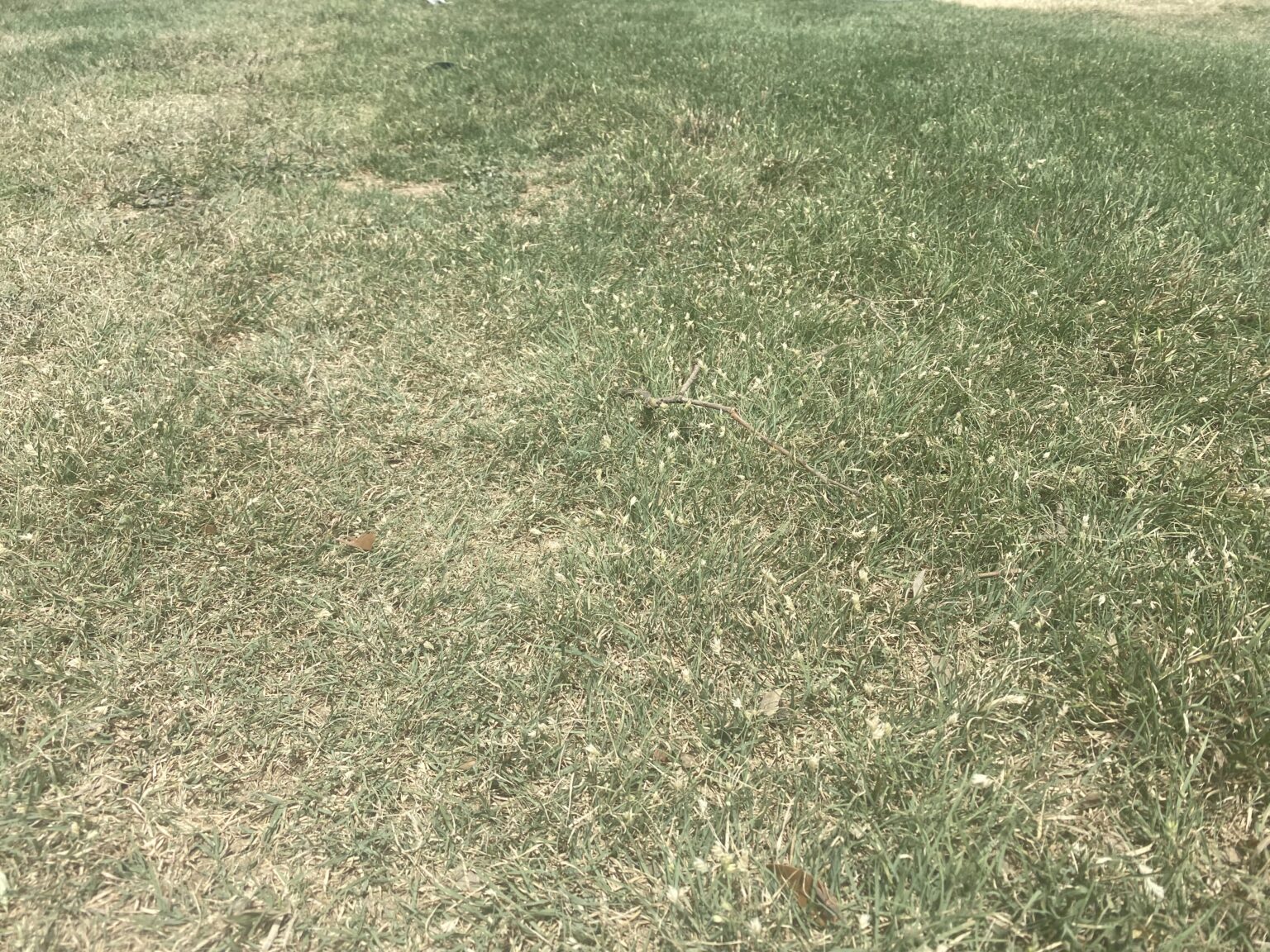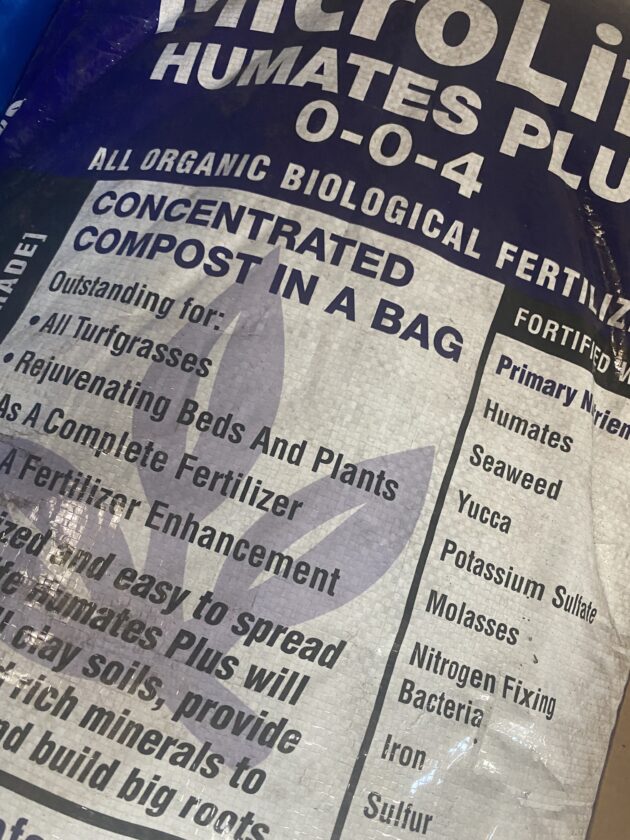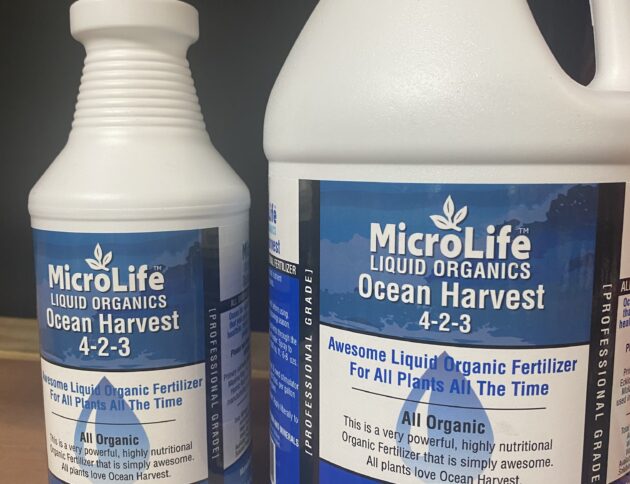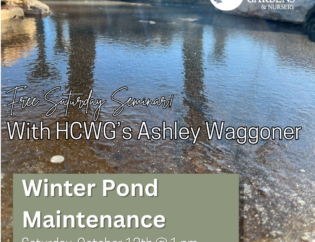Danger!

Summertime heat and drought conditions could ruin your lawn if you’re not careful!
Central Texas isn’t quite like other parts of Texas and our unique set of climate factors, water quality, and soil types plays a huge role in how we approach lawn care. Follow these recommendations to culture a healthy (er) lawn with far less pollution.
Lawn selection– We are going to have three common types of lawns here; Saint Augustine, Bermuda, and Zoysia (you may have a native Buffalo or Buffalo mix these recommendations will apply but may not be as necessary!). Each type has positive and negative qualities, and each may require slightly different watering and fertilization regimes. But, in general, we can apply simple practices across the board and adjust for minute differences as we go along through the seasons.
Watering– One inch of water per week in warmer weather, minimum. If you are watering by hand, using a sprinkler (hose dragging), or have an installed irrigation system, we can use the “tuna-can-method” to ensure your lawn is receiving its required irrigation. Place (empty) tuna cans on the lawn while running your system. If the cans are full by the end of the cycle(s), you’ve put out one inch of irrigation! Easy!
If the newscasters report “an inch of rain fell” in the (hypothetical) storm you can rest easy. But we all know that 1/10 of an inch is probably the reality here in the summer.
Native Buffalo Grass and Bermuda can survive on less, but Bermuda may be damaged. Buffalo will green up when the rains return!
Important: It’s highly recommended that lawns be watered in the early morning hours to prevent fungal infections.
Fertilization– No!!!!! Well not exactly, but we are not going to feed as we did in the spring… or will do so in the fall. What is the big deal? We are HOT and the rain is not falling this year. We don’t want to create a lawn that demands excessive watering that crashes otherwise.
Two products we offer from MicroLife can be a huge help in the summer. Humates Plus (granular) and Ocean Harvest (liquid). Both are great for lawns, landscapes, and gardens.
Humates Plus is a 0-0-4 fertilizer that acts more like a concentrated compost providing soil-enriching elements such as iron, sulfur, healthy bacteria and Fungi, and yucca extract that acts as a natural wetting agent helping water to penetrate the soil (and not evaporate).

Ocean Harvest is a gentle 4-2-3 fertilizer that can be used at full or half-strength in the summer months. Use this once every two weeks, monthly, or as needed when the lawn looks like it needs a little boost. The ingredients are cold-made and include kelp, fish, molasses, and beneficial acids for healthy growth that’s not over the top.
Soils– The species we grow here want 6-8 inches of soil, minimum. Some of us are lucky enough to have this on our property. Others, out in the rocks, are not so lucky. There’s no great trick to cut this corner. We can do everything by the book and still end up with a less-than-lawn. Take a peek under the outdoor carpet and see if you are fighting this losing battle. There’s not much we can do here except bring in soil. Or give up and move to Dallas.
Mowing/Trimming– IMPORTANT! During the hotter months, it’s beyond important to raise the height of our mowers! If you have a service, ask them to do so ASAP. The grass leaf blade is directly proportional to the length of the root. Taller blade = longer root. And right now, it’s all about the roots!
Trim/mow the lawn as often as possible taking no more than 1/4 of the blade at a time. If you remove more than 1/4 of the blade, the lawn will concentrate its energy to regrow the blade, taking resources away from the roots! We need to balance roots and shoots/blades growth!
Sharpen that blade! Nice clean cuts make for clean-looking lawns.
Weed control – Give it a rest… for a bit. Harsh chemical controls, even organic or natural controls can add extra stress to an already stressed lawn. If you have a handy weed-popper or gardener’s grip, mechanical removal is safe right now and can be a great stress relief!
Pro tip: weeding in the morning or evening hours can be quite pleasant. High noon, not so much.
Take these recommendations into consideration. There are one hundred ways to maintain a lawn but these practices are taught at Texas A&M and work well for us at home. If you’d like to have your soil tested visit https://soiltesting.tamu.edu/



You must be logged in to post a comment.